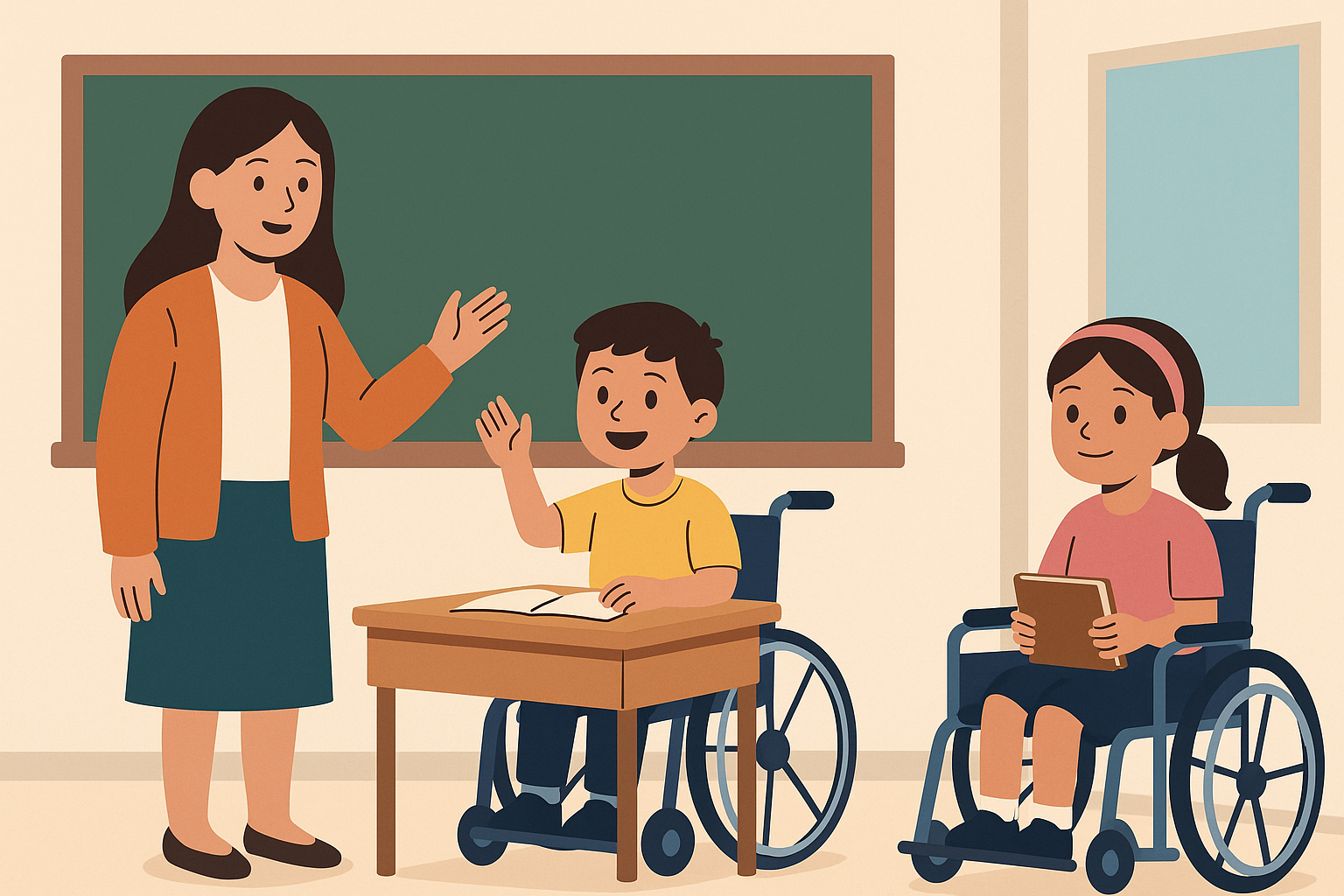The Delhi government has taken a landmark step toward inclusive education by approving 10 new resource centres in government schools. These centres are designed to provide essential therapeutic and support services for children with disabilities—bringing care directly into the classroom and reducing the need for families to seek external interventions.
By offering physiotherapy, occupational therapy, speech therapy, and psychological support, the initiative aims to create a more equitable education system where every child can access the tools they need to succeed.
What the New Resource Centres Will Offer
The resource centres will serve as specialized support hubs within Delhi’s school network. Their goal is to complement academics with therapies and services that address students’ developmental and learning needs.
Key services include:
- Physiotherapy for students with mobility challenges.
- Occupational therapy to build independence in daily life skills.
- Speech therapy for communication difficulties.
- Clinical psychology and rehabilitation services to support mental health and cognitive development.
This approach reflects a holistic model of education—one that integrates health, well-being, and learning.
How the Centres Will Function
To ensure consistency and accountability, the centres will follow a structured operational framework:
- Each therapy session will last 45 minutes, with up to 8 sessions daily.
- Centres will operate six days a week from 9 am to 5 pm.
- Mandatory protocols include CCTV monitoring, hygiene standards, and child protection measures.
- Special Education Teachers (SETs) and Heads of Schools (HOS) will oversee evaluations, referrals, and communication with parents.
- Nodal officers will conduct daily monitoring to ensure quality and compliance.
Why This Move Matters
For Students
The centres make therapies more accessible, allowing children to receive support within the school environment rather than through external appointments. This saves time and ensures continuity.
For Parents
Families gain peace of mind knowing their children will benefit from professional care during school hours, reducing both financial strain and logistical challenges.
For Teachers
With trained specialists available, teachers will be better equipped to meet the diverse needs of students and foster more inclusive classrooms.
For Policy and Society
The decision aligns with the Rights of Persons with Disabilities Act and NEP 2020’s focus on equity, making Delhi a frontrunner in inclusive education policy.
Expert and Public Reactions
Education experts and child-rights advocates have welcomed the announcement, noting that mainstreaming therapeutic support within schools can be transformative. Parents of children with disabilities have also expressed hope that the initiative will improve access, while highlighting the importance of continuous monitoring, skilled staffing, and expansion across more districts.
The Road Ahead for Inclusive Education in Delhi
The approval of these 10 centres signals more than policy—it represents a shift in mindset about what education should look like for children with disabilities. By embedding therapies and support directly into schools, Delhi is moving toward an education system that is truly inclusive.
The challenge now lies in execution. Ensuring that centres are well-staffed, teachers are trained, and families feel involved will determine the initiative’s long-term success. If delivered effectively, the centres could transform the learning journey of thousands of students and set a national benchmark for inclusive education.
At its core, this step is about more than infrastructure. It’s about affirming that every child, regardless of ability, deserves equal access to learning, growth, and opportunity.
FAQs
What is Delhi’s new resource centre initiative for disabled students?
The Delhi government has approved 10 new resource centres in government schools to provide therapy and rehabilitation services for children with disabilities.
What services will the resource centres provide?
Students will have access to physiotherapy, occupational therapy, speech therapy, and psychological counseling within their schools.
When will the new resource centres in Delhi schools start functioning?
The centres are expected to begin operations this academic year, with sessions running six days a week from 9 am to 5 pm.
How long will each therapy session last at the centres?
Each session will last 45 minutes, and every centre will conduct up to eight sessions per day.
Who will manage and monitor the resource centres?
Special Education Teachers and Heads of Schools will coordinate daily operations, while nodal officers will oversee quality and compliance.
How will student safety be ensured at these centres?
All centres will follow strict safety protocols including CCTV monitoring, hygiene standards, and child protection guidelines.
Why are these centres important for inclusive education?
They make therapies accessible within schools, reduce financial and logistical challenges for parents, and ensure children with disabilities can learn alongside their peers.

